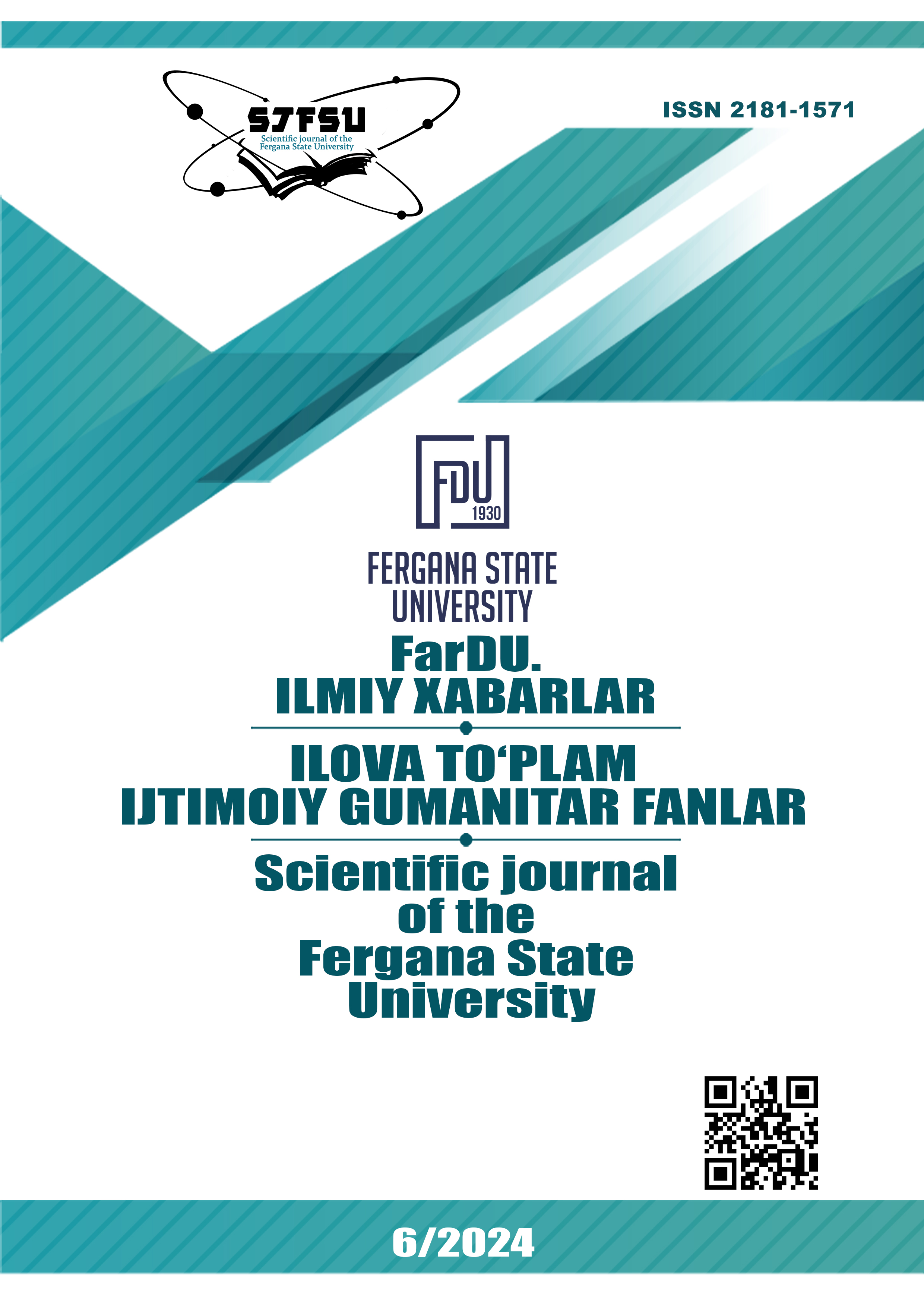Pedagogical-psychological and social characteristics of developing logical thinking in visually impaired students.
Keywords:
visually impaired students, logical thinking, pedagogical-psychological characteristics, social characteristics, special education, psychological support, teaching methods, role of teachers, society, development, disability, inclusive education.Abstract
This research is dedicated to studying the pedagogical-psychological and social characteristics of developing logical thinking in visually impaired students. The study analyzes the problems encountered in the education of visually impaired children and ways to overcome them. The role of teachers in developing students' logical thinking, the importance of psychological support, and special teaching methods are emphasized. Additionally, social factors, including family environment and social interaction styles, are examined in relation to their impact on the overall development of visually impaired students. The results of the study will assist teachers and parents in developing effective approaches to enhance logical thinking in visually impaired students.
References
Zadeh, L. A. (1965).Fuzzy Sets.Academic Press.— Mantiqiy fikrlash va qaror qabul qilishda noaniqlikni hisobga olish uchun zarur bo‘lgan asosiy ilmiy manba.
Piaget, J. (1972).Psychology and Epistemology: Towards a Theory of Knowledge.Viking Press.— Kognitiv rivojlanish va mantiqiy fikrlashning shakllanish jarayonini o‘rgangan asar.
Vygotsky, L. S. (1978).Mind in Society: The Development of Higher Psychological Processes.Harvard University Press.— Ijtimoiy tizim va pedagogika asosida fikrlashning rivojlanishiga doir ilmiy asar.
Gardner, H. (1983).Frames of Mind: The Theory of Multiple Intelligences.Basic Books.— Turli intellektual ko‘nikmalarni va mantiqiy fikrlashni rivojlantirish usullarini o‘rganish.
Jonassen, D. H. (1999).Computers as Mindtools for Schools: Engaging Critical Thinking.Prentice Hall.— Ta'lim jarayonida texnologiya vositalaridan foydalanish va ularning mantiqiy fikrlashni rivojlantirishdagi roli.
Ericsson, K. A., Krampe, R. T., & Tesch-Römer, C. (1993).The Role of Deliberate Practice in the Acquisition of Expert Performance.Psychological Review, 100(3), 363-406.— Mantiqiy fikrlashni rivojlantirishda maqsadli mashg‘ulot va amaliyotning o‘rni.
Sweller, J. (1988).Cognitive Load During Problem Solving: Effects on Learning.Cognitive Science, 12(2), 257-285.— O‘quvchilarning mantiqiy fikrlashda kognitiv yuklanishning ta'siri va uning samaradorligi.
Resnick, L. B. (1987).Education and Learning to Think.National Academy Press.— Ta'lim tizimida fikrlashning rivojlanishi va mantiqiy ko‘nikmalarni o‘rgatish.
Anderson, J. R. (1995).Cognitive Psychology and Its Implications.W.H. Freeman and Company.— Kognitiv psixologiya va uning ta'lim jarayoniga qanday ta'sir qilishi.
Säljö, R. (2010).Learning and Digital Technologies: A Sociocultural Approach.Routledge.— Ijtimoiy va madaniy kontekstda ta'lim va texnologiyalarning mantiqiy fikrlashni rivojlantirishdagi o‘rni.
Mayer, R. E. (2002).Cognitive, Metacognitive, and Motivational Aspects of Learning.Journal of Educational Psychology, 94(2), 269-276.— Mantiqiy fikrlash, metakognitsiya va motivatsiyaning o‘zaro bog‘liqligi haqida ilmiy ish.
Dewey, J. (1910).How We Think.D.C. Heath & Co.— Mantiqiy fikrlashni o‘rganish va uning ta'lim jarayonidagi o‘rni haqida asosiy ish.
Brown, A. L., & Campione, J. C. (1994).Guided Discovery in a Community of Learners.The Handbook of Education and Human Development.— Jamiyatda o‘rganish va mantiqiy fikrlashni rivojlantirish.
Shulman, L. S. (1987).Knowledge and Teaching: Foundations of the New Reform.Harvard Educational Review, 57(1), 1-22.— Ta'lim va o‘qitishda bilimlarning qanday rol o‘ynashini tahlil qilish.
Downloads
Published
Issue
Section
License
Copyright (c) 2025 Scientific journal of the Fergana State University

This work is licensed under a Creative Commons Attribution-NonCommercial-NoDerivatives 4.0 International License.

